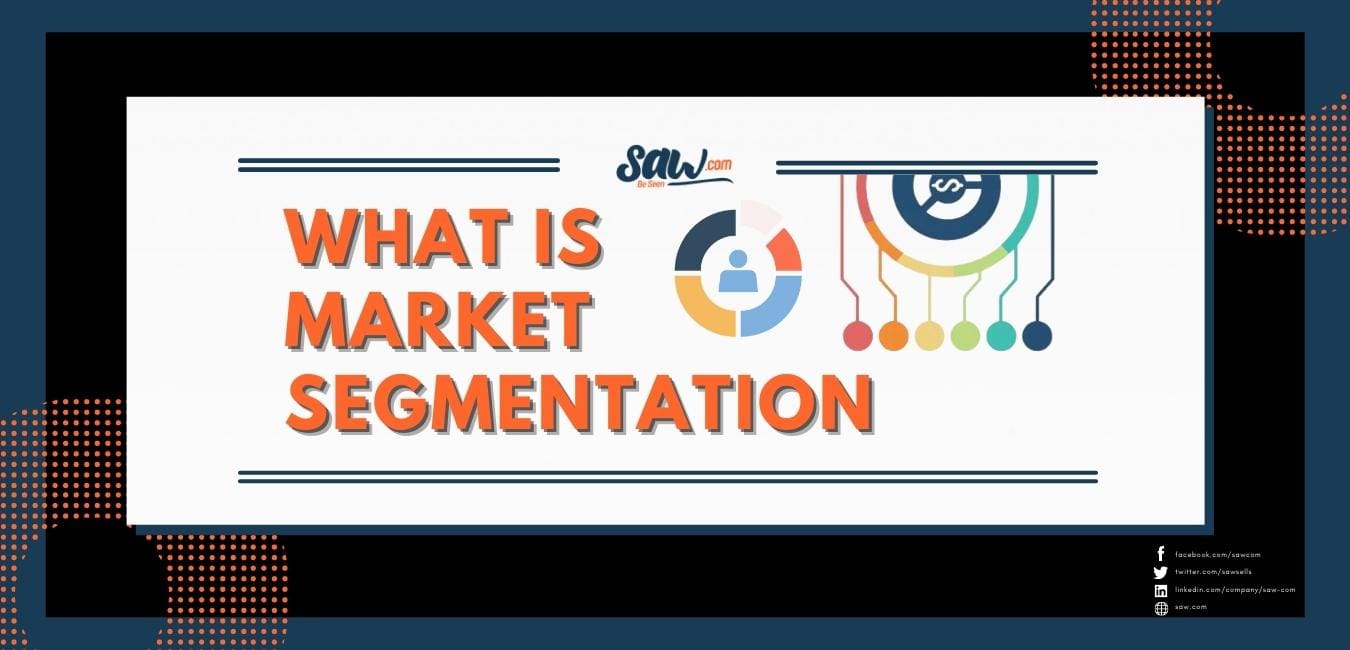When creating a product, advertisement or full campaign – you need to understand your target market. Additionally, you need to understand what message will resonate with your target market. Whatever marketing your company is doing, it should properly convey the essence of your brand to your audience. It should grab their attention, fit their needs and keep them coming back. Creating a marketing plan that does not fit your business message, you risk wasting valuable advertising dollars and even losing customers.
We do not just help you buy a domain or sell a domain, we can also help your business with branding. Market segmentation can help you target the specific audience that are interested in your products. In this article we will cover the basics of market segmentation, the four main types and how it can benefit your business marketing strategy.
What is Market Segmentation?
As a marketer, it is your job to know your target audience like the back of your hand. You should know their location, age, interests, dislikes, etc. Market segmentation allows you to identify the correct market for your company’s products.
Essentially, market segmentation is the practice of dividing a target market into approachable, organized groups. These groups are created based on the target market’s needs, culture, priorities, demographics, interests and more. By dividing your target market into smaller groups, you may better understand the people you are serving.
What Are the Types of Market Segmentation?
When branding a business, you need to know your market. There are many types of market segmentation. However, below are the four main types of market segmentation.
1. Demographic
The demographic market segmentation asks the question – who is your customer?
For a B2B, business to business model, you would look for customer traits like type of industry, company size, etc. For a B2C, business to consumer model, you would look at traits such as age, gender, occupation, income, etc. This is the most common type of market segmentation when starting a company or introducing a new product. Additionally, the data is easy to obtain through U.S. Census Bureau data.
Understanding the demographic of your customer is crucial when launching products and creating marketing campaigns. You can not assume every customer will have the same wants, needs and purchasing behaviors. However, if you organize your customers into a certain demographic, this can be assumed. For example, useful information would be that people ages 40-50 are much more likely to purchase your product than people ages 20-25.
2. Psychographic
This segment looks at the audience based on their personality. Psychographic information does require more resources to conduct research and gather information. However, it is worth it to better understand your customer. Some traits within this segment include interests, beliefs, lifestyle, values, etc.
We recommend paying attention to several psychographic traits when forming your marketing plan. If you pay attention to your customer and your marketing targets someone’s personality, it is more likely individuals will be loyal to your brand.
3. Behavioral
You can also segment your market based on consumer behavior. Specifically, behavior interacting with your brand. Traits within this segment include purchase patterns, previous purchases, awareness of your business, etc.
You can collect this data from customer relationship management (CRM) software or by installing cookies on your site. This data is useful because it shows you how people directly interact with your business, website, and products. Additionally, it will help you create a more effective marketing plan for the future. What will keep customers on your site, longer? What will make them purchase the items in their shopping cart?
4. Geographic
The geographic market segmentation divides your audience by where they are located. These traits include region, continent, country, city, town, or district. This segment is useful for when the location of a customer impacts their overall purchase decision. Most customers are, in fact influenced by where they live.
This form of segmentation is very important for international companies. Customers from around the globe have different wants, needs and expectations – which you can target with the right marketing plan. For example, if you have one region that prefers print ads and one region that prefers online ads, you can do both and utilize your resources wisely.
Additionally, this segmentation is important when building a website. If you are an international company, you could look into acquiring a region-specific domain name. For example, if you have a large customer base in the UK you could acquire a co.uk or a .ca for Canada.
Benefits of Market Segmentation
By paying attention and truly understanding your target audience, your business will benefit and you will have a better relationship with your customer. Using marketing segmentation can strengthen everything from your marketing plan, to product development, your website and your overall business.
The four marketing segments can be utilized while developing a new product or ad campaign. However, you could also use marketing segmentation when starting your business, choosing a domain name, designing a website, social media page, etc.
Ready to Build a Marketing Strategy?
One of the first steps in your business marketing strategy? Acquiring a domain name. A domain name is essentially your street address, but online. It is how new and returning customers will find you online. The easier it is to find you, the more likely customers are to return time and time again to your site.
Our team of domain brokers have years of experience in the industry. Our domain brokers are experts in domain acquisition, appraisal, branding, brand protection, portfolio management services and more. We pride ourselves in our transparency and passion to help you reach your goals. Additionally, we handle the nitty-gritty work for you.
Our mission is to help you be seen online. If you are interested in speaking with an expert from our domain brokerage service about buying a domain, please contact us for a free consultation.

